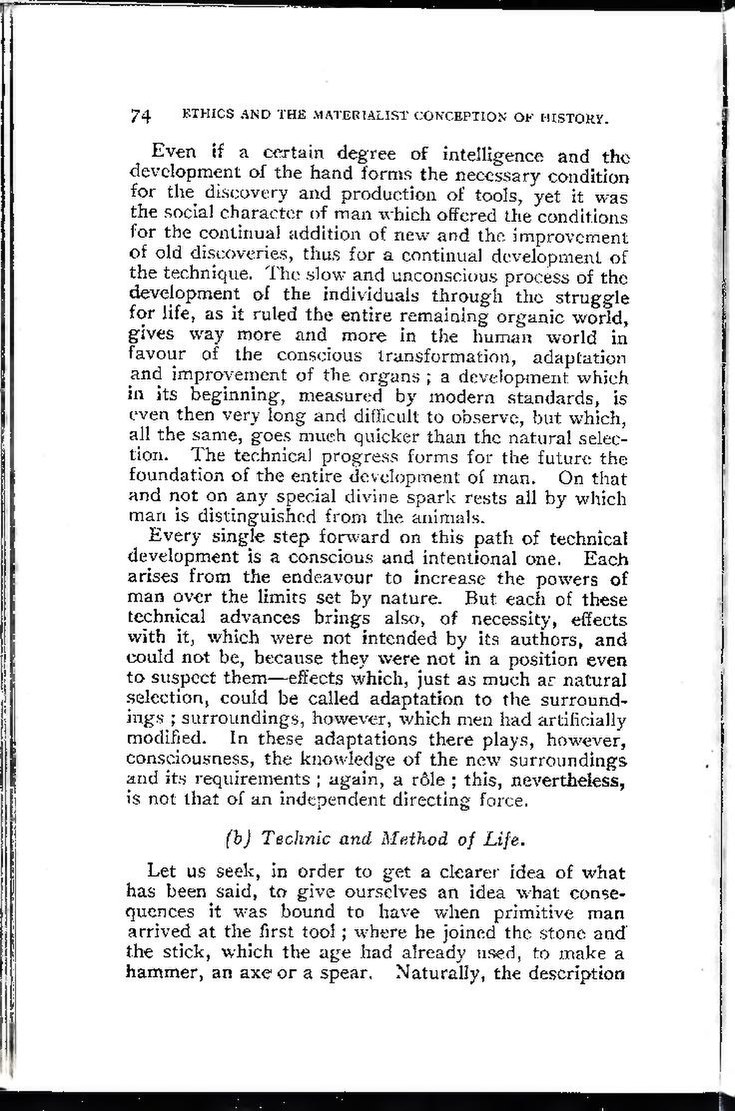Even if a certain degree of intelligence and the development of the hand forms the necessary condition for the discovery and production of tools, yet it was the social character of man which offered the conditions for the continual addition of new and the improvement of old discoveries, thus for a continual development of the technique. The slow and unconscious process of the development of the individuals through the struggle for life, as it ruled the entire remaining organic world, gives way more and more in the human world in favour of the conscious transformation, adaptation and improvement of the organs; a development which in its beginning, measured by modern standards, is even then very long and difficult to observe, but which, all the same, goes much quicker than the natural selection. The technical progress forms for the future the foundation of the entire development of man. On that and not on any special divine spark rests all by which man is distinguished from the animals.
Every single step forward on this path of technical development is a conscious and intentional one. Each arises from the endeavour to increase the powers of man over the limits set by nature. But each of these technical advances brings also, of necessity, effects with it, which were not intended by its authors, and could not be, because they were not in a position even to suspect them—effects which, just as much as natural selection, could be called adaptation to the surroundings; surroundings, however, which men had artificially modified. In these adaptations there plays, however, consciousness, the knowledge of the new surroundings and its requirements; again, a rôle; this, nevertheless, is not that of an independent directing force.
(b) Technic and Method of Life.
Let us seek, in order to get a clearer idea of what has been said, to give ourselves an idea what consequences it was bound to have when primitive man arrived at the first tool; where he joined the stone and the stick, which the age had already used, to make a hammer, an axe or a spear. Naturally, the description
